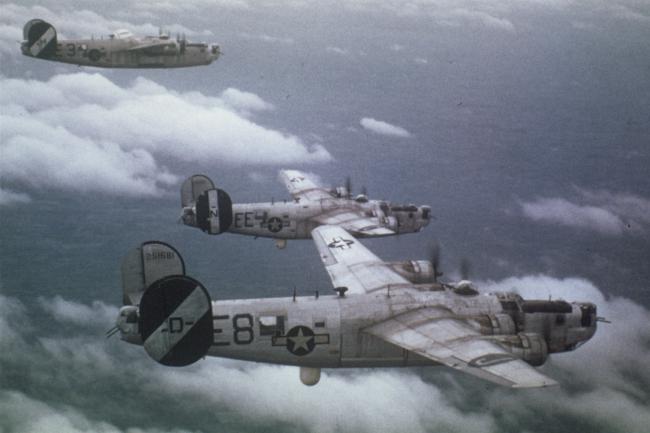42-95247 Dixie flyer
Shot down 12 September 1944 4 KIA 5 POWs.
Connections
See how this entry relates to other items in the archive by exploring the connections below.
Units served with

- Unit Hierarchy: Group
- Air Force: Eighth Air Force
- Type Category: Bombardment

- Unit Hierarchy: Squadron
- Air Force: Eighth Air Force
- Type Category: Bombardment
People
- Military/Civilian/Mascot: Military
- Nationality: American
- Unit: 445th Bomb Group 702nd Bomb Squadron
- Service Numbers: 31341437
- Highest Rank: Staff Sergeant
- Role/Job: waist gunner
- Military/Civilian/Mascot: Military
- Nationality: American
- Unit: 445th Bomb Group 702nd Bomb Squadron
- Highest Rank: Technical Sergeant
- Role/Job: Radio Operator
- Military/Civilian/Mascot: Military
- Nationality: American
- Unit: 445th Bomb Group 702nd Bomb Squadron
- Service Numbers: 42010197
- Highest Rank: Staff Sergeant
- Role/Job: waist gunner
- Military/Civilian/Mascot: Military
- Nationality: American
- Unit: 445th Bomb Group 702nd Bomb Squadron
- Service Numbers: O-706717
- Highest Rank: Second Lieutenant
- Role/Job: Bombardier
- Military/Civilian/Mascot: Military
- Nationality: American
- Unit: 445th Bomb Group 702nd Bomb Squadron
- Service Numbers: 12030094
- Highest Rank: Staff Sergeant
- Role/Job: Tail Gunner
Missions

- Date: 12 September 1944
Events
| Event | Location | Date | Description |
|---|---|---|---|
|
Other Failed to Return (FTR) Over Water (OW) |
North Sea | 12 September 1944 |
